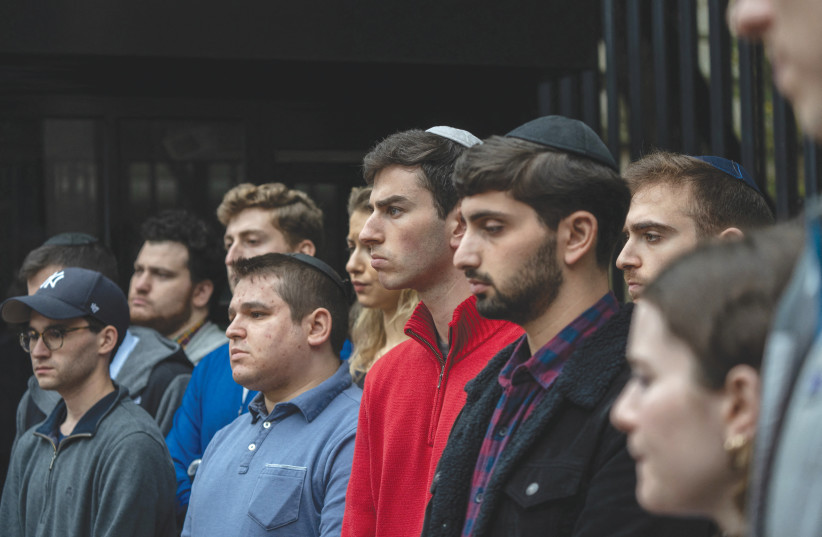Columbia University's Task Force on Antisemitism released its first report on Monday with emphasis on three goals pertaining to the university's rules on-campus demonstrations.
Columbia's administration came under fire in the aftermath of October 7 when a Jewish student was physically assaulted and swastikas were graffitied on campus. Jewish students were called slurs. Pro-Palestinian protests were rampant.
The House Committee on Education and the Workforce is conducting a formal antisemitism investigation into the university. The Department of Education is also conducting a Title VI investigation into Columbia.
According to a release from the University, the task force's report emphasizes safeguarding the rights of all Columbia students, faculty, and staff to protest; ensuring that protests do not interfere with the rights of other Columbia affiliates to speak, teach, research, and learn; and third, combating discrimination and harassment.
The task force recommends a "speaker's corner" approach that permits protests in designated areas, but not in academic buildings.

“I welcome the initial report of the Task Force on Antisemitism and am grateful to the co-chairs and task force members from Columbia, Barnard College, and Teachers College for their hard and thoughtful work,” University President Minouche Shafik said in the release. “As the task force makes clear, it is essential to ensure that debates and disagreements across Columbia are rooted in academic rigor and civil discourse, and that Jewish students, faculty, and staff, and all members of our community, feel safe, supported, and included. The task force’s important work will continue across a number of fronts as the University works to address this ancient, but sadly persistent, form of hate.”
Assessing discrimination against Jewish students and staff
According to the release, the task force will also include an assessment of the discrimination and bias experienced by Jewish students and staff along with proposed remedies, as well as recommendations to "enhance Columbia's academic and intellectual life in ways that fully embody the principles of free expression and viewpoint diversity."
Additional task force reports are expected in the coming year.
